Our Critical Illness Cover,
there when it counts.
Age restrictions apply to critical illness plans.
Cancer conditions
Cancer
– excluding less advanced cases
ABI+
Cancer is a disease where normal cells change and grow in an abnormal way. If left untreated, they can destroy surrounding healthy cells and eventually destroy healthy cells in other parts of the body.
There are about 200 different types of cancer, varying widely in outlook and treatment. 1 in 2 people born after 1960 in the UK will be diagnosed with some form of cancer during their lifetime*. Experts estimate that more than 4 in 10 cancer cases could be prevented by lifestyle changes, such as not smoking, cutting back on alcohol and keeping a healthy body weight.
Our cover exceeds the ABI definition as the ABI definition has an exclusion relating to chronic lymphocytic leukaemia, but we do not.
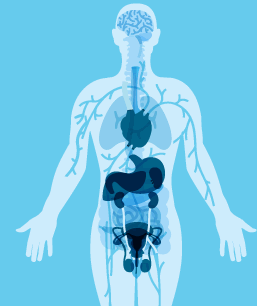
DID YOU KNOW?
Cancer is our most claimed for illness, accounting for 62.3% of claims. In 2015, we paid out over £106 million in cancer claims.
*Cancer Research UK (2015).
Please note, not all types of cancer are covered under Critical Illness Cover Plans.
Cancer conditions
Carcinoma in situ of the breast
– treated by surgery
Additional cover
Carcinoma in situ may be described as an early form of breast cancer.
Early cancerous changes in the breast may occur before the cancer spreads to other parts of the body (this is called cancer in situ). In these circumstances, surgery may be required to protect against the condition spreading.
This is additional cover provided with our Critical Illness Cover plans, which pays out a maximum of £25,000. A claim made under this definition does not affect the full amount of cover on the plan.
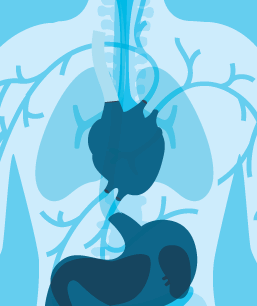
DID YOU KNOW?
About 48,000 women get breast cancer in Britain each year. 8 out of 10 are over the age of 50 but younger women, and in rare cases, men, can also get breast cancer.
Cancer conditions
Low grade prostate cancer
– requiring treatment
Additional cover
This provides cover for cancer of the prostate, which has been treated but is not advanced enough for it to be covered by our Cancer definition.
Cancer cells are graded in accordance to how alike they are to normal cells. Cancer cells that look very similar to normal cells will be classified as low grade and tend to grow slowly. Conversely, cancer cells that look unlike normal cells will be high grade, which are more aggressive.
This is additional cover provided with our Critical Illness Cover plans, which pays out a maximum of £25,000. A claim made under this definition does not affect the full amount of cover on the plan.
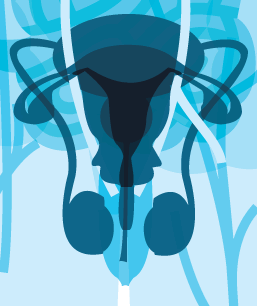
DID YOU KNOW?
Prostate cancer is the most common cancer in men in the UK, with over 40,000 new cases diagnosed every year*.
*NHS Choices (2015).
Heart related conditions
Aorta graft surgery
– requiring surgical replacement
ABI+
The aorta is the largest artery in the human body and carries blood from the heart, distributing oxygenated blood to all parts of the body.
Aorta Graft Surgery may be needed to correct a weakening or bulging in the aorta. The aorta can become diseased causing the wall to weaken and stretch.
ABI covers surgery to the Aorta following a disease only. Our cover exceeds the ABI definition by also covering surgery following trauma.
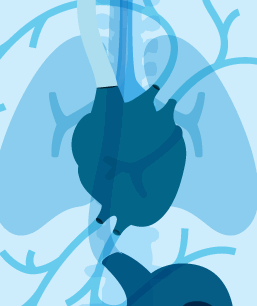
DID YOU KNOW?
In 2015 the average age of our claimants for aorta graft surgery was 47 years.
Heart related conditions
Cardiac arrest
– with insertion of a defibrillator
In addition to ABI illnesses
A cardiac arrest occurs when your heart suddenly stops pumping blood around the body.
If you have a cardiac arrest, you lose consciousness almost immediately. There are also no other signs of life such as breathing or movement. Cardiac arrests are life threatening and require immediate medical attention.

DID YOU KNOW?
Unlike a heart attack, a cardiac arrest does not always occur due to existing coronary heart disease. The most common cause of a cardiac arrest is a life threatening abnormal and irregular heart rhythm called ventricular fibrillation.
Heart related conditions
Cardiomyopathy
– of specified severity
In addition to ABI illnesses
Cardiomyopathy is a disease of the heart muscles that can reduce its function. It can affect the size and shape of the heart, as well as the electrical signals that usually make the heart beat in a regular rhythm.
People of all ages can suffer from cardiomyopathy and the disease can run in families. Although symptoms vary, they usually include shortness of breath, fainting and palpitations.

DID YOU KNOW?
Cardiomyopathy is the name given to a group of conditions which affect the muscles of the heart. The three main types are hypertrophic, dilated and arrhythmogenic right ventricular cardiomyopathy.
Heart related conditions
Coronary artery bypass grafts
– with surgery to divide the breastbone or anterolateral thoracotomy
ABI+
Coronary artery by-pass surgery is used to treat blocked arteries in the heart. The surgery diverts blood around narrowed or clogged parts of the major arteries to improve blood flow and oxygen supply to the heart.
Narrowing or blockage of coronary arteries can be caused by the build up of fatty deposits (plaques).
ABI requires surgery to be carried out by dividing the sternum (breastbone). Our cover exceeds the ABI definition by also covering surgery carried out from the side of the chest.

DID YOU KNOW?
These fatty deposits can be caused by a poor lifestyle such as a high fat diet, smoking and high blood pressure.
Heart related conditions
Heart attack
– of specified severity
ABI+
A heart attack is a serious medical emergency in which the supply of blood to the heart is suddenly blocked, usually by a blood clot. Lack of blood to the heart can seriously damage the heart muscle.
Taking regular exercise, stopping smoking and lowering your alcohol consumption are all effective steps to reduce the risk of having a heart attack.
The ABI definition requires symptoms (e.g. chest pain).
Our cover exceeds the ABI definition by not insisting on there being typical clinical symptoms or a specific level of increase in cardiac markers (troponins).

DID YOU KNOW?
We paid 269 heart attack claims in 2015, paying out approximately £16 million. This is our second highest reason for paying Critical Illness Cover claims.
The average age of a claimant for heart attack is 49 and 89% of these claimants are male.
Heart related conditions
Heart valve replacement or repair
– with surgery
ABI+
Heart valves are important to make sure blood flows through the heart in the right direction, so that blood is circulated around the body efficiently.
These valves can become diseased, which may cause your heart to pump less efficiently. Strain can be placed on the heart if blood does not flow through properly, leading to long term complications.
Common symptoms of heart valve disease include breathlessness, tiredness, chest pain and swollen ankles.
The ABI definition requires surgery to be carried out by dividing the sternum (breastbone). Our cover exceeds the ABI definition as we cover the customer regardless of the type of surgery.

DID YOU KNOW?
There are two common types of heart valve replacement, they are mechanical (artificial valves) and tissue (animal valves).
Heart related conditions
Open heart surgery
– with median sternotomy
In addition to ABI illnesses
Open heart surgery is any surgery where the chest is cut open and surgery is performed on the muscle, valves or arteries of the heart.
Some new procedures are done with the heart still beating, while traditional surgery utilises a heart-lung bypass machine.

DID YOU KNOW?
For this definition surgery must involve a median sternotomy (surgery to divide the breastbone).
Heart related conditions
Primary pulmonary hypertension
– of specified severity
In addition to ABI illnesses
Primary pulmonary hypertension is raised blood pressure in the pulmonary arteries (the blood vessels that supply the lungs). It’s a rare but serious condition that can damage the right side of the heart, making it less efficient at pumping blood around the body and getting oxygen to the muscles.
The condition can affect people of any age, although some types are more common in young women. Symptoms may include shortness of breath, fatigue, chest pain and an accelerated heartbeat.

DID YOU KNOW?
Around 6,000-7,000 people in the UK have pulmonary hypertension, and it is thought that more remain undiagnosed*.
*www.nhs.co.uk (2015)
Neurological conditions
Alzheimer’s disease
– resulting in permanent symptoms
ABI
Alzheimer’s disease is the most common cause of dementia, affecting nearly 500,000 people in the UK*. Symptoms include memory loss, confusion, communication problems and general impairment of mental function.
The condition gradually worsens impairing the individuals ability to carry out basic functions which most of us take for granted such as walking, swallowing and breathing.

DID YOU KNOW?
Those with Alzheimer’s are more vulnerable to developing infections such as pneumonia. It is often these illnesses that are responsible for death.
*NHS Choices (2015)
Neurological conditions
Benign brain tumour
– resulting in either surgical removal or permanent symptoms
ABI+
A benign brain tumour is a non-cancerous abnormal growth of tissue that can increase in size and cause pressure in the brain. Symptoms may include headaches, seizures and blurred vision.
Benign brain tumours are relatively slow-growing and unlikely to spread to other parts of the body. Surgery to remove the tumour might be possible and once removed they tend not to recur. However, the option to operate depends on the size and location of the tumour. We will pay a claim if the tumour is required to be surgically removed or if it results in permanent neurological symptoms.

DID YOU KNOW?
There are about 4,300 people diagnosed with benign brain tumours in the UK each year*.
*NHS Choices (2015).
Neurological conditions
Creutzfeldt-Jakob disease (CJD)
– resulting in permanent symptoms
In addition to ABI illnesses
Creutzfeldt-Jakob disease (CJD) is a rare disease of the nervous system. CJD causes brain damage that worsens over time. The disease can be present without symptoms for many years.
Once the symptoms appear, they may include failing memory, problems with vision, immobility, loss of speech and coma in advanced stages. There is currently no known cure.

DID YOU KNOW?
It can be difficult to prevent CJD because most cases occur for unknown reasons, while some are caused by an inherited genetic fault.
Neurological conditions
Dementia
– resulting in permanent symptoms
In addition to ABI illnesses
Dementia is a term used to describe various different brain disorders that have in common a loss of brain function.
Dementia is caused when the brain is damaged by diseases, such as Alzheimer's, vascular dementia or a series of strokes. Symptoms may include memory loss, confusion and the inability to reason. Dementia is usually progressive and eventually severe. It causes the sufferer to become confused and disorientated and often unable to perform routine tasks like cooking a meal.
Our cover also includes pre-senile dementia.

DID YOU KNOW?
Dementia is a common condition that affects 850,000 people in the UK. Around 24.5 million of the UK population have a close friend or family member with dementia*.
*Alzheimer's Research UK (2015).
Neurological conditions
Encephalitis
– resulting in permanent symptoms
In addition to ABI illnesses
Encephalitis is an uncommon but serious illness that causes inflammation of the brain. This is caused by either an infection in the brain or through the immune system reacting to a non infectious cause such as a tumour.
Symptoms may include severe headache, nausea, vomiting, convulsions, personality changes, problems with speech and/or hearing, confusion and disorientation.

DID YOU KNOW?
There are about 4,000 cases of encephalitis in the UK each year*.
*NHS Choices (2014).
Neurological conditions
Motor neurone disease
– resulting in permanent symptoms
ABI+
Motor neurone disease is a condition that causes gradual weakening and wasting of the muscles, usually beginning in the arms and legs.
This progressive weakening can cause difficulty walking or holding objects. As the disease develops, other muscle groups may be affected such as those involving speech, swallowing and breathing. Eventually 24-hour care may be needed.
The ABI definition does not cover spinal muscular atrophy. Our cover exceeds the ABI definition as we do cover spinal muscular atrophy.

DID YOU KNOW?
There are about 5,000 people living with motor neurone disease in the UK at any one time. Although most cases develop in people in their 60’s, teenagers have also been known to suffer from the condition.
Neurological conditions
Multiple sclerosis
– where there have been symptoms
ABI+
Multiple sclerosis (MS)is a neurological disease that affects the myelin – a coating surrounding the nerves in the brain and spinal cord. Symptoms include problems with muscle movement, lack of coordination and a lack of muscle strength.
MS is the most common disabling neurological disease among young adults and is usually diagnosed between the ages of 20 and 40. There’s no known cure.
ABI definition requires six months’ continuous symptoms. Our cover exceeds the ABI definition as we cover customers on diagnosis, provided there have been symptoms. We do not insist on a timeframe.

DID YOU KNOW?
In 2015, we paid approximately £9 million in multiple sclerosis claims. This condition ranks at number 4 of our top 5 claimed for illnesses.
The average age is 41 years old and over 59% of claimants were female.
Neurological conditions
Multiple system atrophy
– resulting in permanent symptoms
In addition to ABI illnesses
Multiple System Atrophy (MSA) is a progressive disease of the nervous system. Symptoms are varied, including muscle weakness, swallowing difficulties and increasingly severe impairment of physical function. MSA greatly reduces the life expectancy, as symptoms worsen over time.
Unfortunately, while there are treatments available to delay some of the symptoms, there is currently no cure.

DID YOU KNOW?
MSA is a rare disease with fewer than 3,000 people living with it in the UK.
Neurological conditions
Parkinson’s disease
– resulting in permanent symptoms
ABI
Parkinson’s disease is a slowly progressive disease where the brain becomes increasingly damaged over many years. There are three main symptoms of the disease; tremors (uncontrollable shaking or trembling), muscle stiffness (rigidity which makes everyday tasks difficult) and slowness of movement.
Parkinson’s is caused by a loss of nerve cells in the brain. Exactly what causes this loss of nerve cells is still unclear.

DID YOU KNOW?
An estimated 1 in 500 people are affected by Parkinson’s disease, with 127,000 people in the UK currently living with the condition*.
*Parkinson’s UK (2014).
Neurological conditions
Progressive supranuclear palsy
– resulting in permanent symptoms
In addition to ABI illnesses
Progressive Supranuclear Palsy (PSP) is a progressive brain disease in which increasing numbers of brain cells become damaged over time.
The disease progresses to seriously affect vision and movement. PSP can also cause changes in behaviour, personality, memory loss and slurred speech. As the disease progresses, the ability to swallow becomes difficult and physical movement less stable.

DID YOU KNOW?
PSP is a relatively rare condition, affecting an estimated 4,000 people in the UK*. Most cases of PSP first develop in people who are 60 – 65 years of age, although the condition has been diagnosed in people as young as 40.
*Progressive Supranuclear Palsy Association (2014).
Neurological conditions
Spinal stroke
– resulting in symptoms lasting at least 24 hours
In addition to ABI illnesses
Spinal stroke is a serious medical condition that can lead to severe disability including paralysis. Spinal strokes are caused by a disruption in the blood supply to the spinal cord.
Most spinal strokes are caused by blockages (usually blood clots) in the blood supply to the spine. Some spinal strokes are caused by bleeds (haemorrhage).
People with high blood pressure and cholesterol, smokers, and people with heart disease or diabetes (or a family history of heart disease or diabetes) are at an increased risk.

DID YOU KNOW?
Spinal strokes are far less common than strokes that affect the brain but will nearly always result in significant weakness and disability.
Neurological conditions
Stroke
– resulting in symptoms lasting at least 24 hours
ABI+
A stroke is a serious medical condition that can lead to brain damage or death. They are caused by a sudden loss of blood supply or haemorrhage to a particular part of the brain. Symptoms and how well a person recovers depends on the extent of the damage.
Strokes are a significant cause of disability in the UK, with 150,000 people suffering from a stroke each year.
The risk of having a stroke can be reduced by eating a healthy diet, exercising regularly, stopping smoking and reducing alcohol consumption.

DID YOU KNOW?
In 2015, we paid over £9 million for stroke claims. The condition ranks number 3 in the top 5 reasons for making a claim.
Neurological conditions
Traumatic brain injury
– resulting in permanent symptoms
ABI
Traumatic brain injury is covered when permanent symptoms result from the injury due to death of brain tissue.
An example of a severe brain injury could be a road accident or an accident whilst participating in a hazardous activity.

DID YOU KNOW?
The greatest number of traumatic brain injuries are in those in their late teens and early twenties.
Accident or disability
Accident hospitalisation benefit
In addition to ABI illnesses
This cover will pay £5,000 if the person covered is admitted to hospital with physical injuries for a minimum of 28 consecutive days immediately following an accident.
The physical injury must have resulted solely and directly from unforeseen, external, violent and visible means.

DID YOU KNOW?
This is an additional benefit provided with our critical illness cover plans.
Accident or disability
Blindness
– permanent and irreversible
ABI+
Blindness is the permanent and irreversible loss of vision. This is determined with the use of a Snellen eye chart, the chart commonly used by opticians which displays gradually decreasingly sized letters and numbers.
The ABI specify permanent and irreversible loss of sight to the extent that even when tested with the use of visual aids, vision is measured at 3/60 or worse in the better eye using a Snellen eye chart. Our cover exceeds ABI definition as we cover blindness measured at 6/60 or worse.
6/60 vision means you can read a letter at six metres that someone with normal or healthy vision can read at sixty metres.

DID YOU KNOW?
In the UK, there are almost 2 million people living with sight loss. Of these, around 360,000 are registered as blind or partially sighted.*
*NHS Choices (2015).
Accident or disability
Coma
– with associated permanent symptoms
ABI+
A coma is a state of unconsciousness from which the patient cannot be awakened and has no control over bodily functions. The individual is alive, but with minimal brain activity, unable to move or be woken. Recovery rates vary, depending upon the depth, duration and cause of the coma.
The ABI’s definition of a coma requires the unconsciousness to last at least 96 hours. Our definition does not set out a time limit.

DID YOU KNOW?
A coma can be caused by a traumatic head injury or by a condition that affects the brain, such as a stroke. They can also be the result of illness, infection, very low blood sugar or serious accident.
Accident or disability
Deafness
– permanent and irreversible
ABI+
This means the permanent loss of hearing in both ears, measured by using an audiogram across different frequencies, which vary from low to high pitch.
Age and prolonged exposure to loud noises are the most common cause of hearing loss. People who are at particular risk of developing noise-induced hearing loss include people who work with noisy equipment and in environments with loud music.
ABI requires hearing loss greater than 95 decibels across all frequencies in the better ear using a pure tone audiogram. Our cover is wider as we cover hearing loss greater than 70 decibels.

DID YOU KNOW?
There are more than 10 million people in the UK with some form of hearing loss, this is one in six of the population. Of this amount, 3.7 million people are of working age, and 6.3 million are of retirement age*.
*Action on Hearing Loss (2011).
Accident or disability
Loss of hand or foot
– permanent physical severance
ABI+
This means physical severance of a hand or foot and may be caused by illness or serious accident.
The ABI definition requires loss of two or more hands or feet. Our cover exceeds the ABI definition as we only require the loss of one hand or foot.

DID YOU KNOW?
Physical severance may be required when a limb poses life-threatening danger to the person’s health. This could be caused by cancer, or a serious infection. Gangrene could be another cause; when the body’s tissue begins to die as a result of loss of blood supply.
Accident or disability
Loss of speech
– total permanent and irreversible
ABI
This is the permanent and irreversible loss of the ability to speak.
Total loss of speech can be caused by surgery to remove the vocal chords due to a tumour or damage to the brain following serious accident or illness.

DID YOU KNOW?
This definition does not cover temporary loss of speech.
Accident or disability
Paralysis of a limb
– total and irreversible
ABI+
Paralysis of a limb is the complete loss of use of an arm or a leg. The most likely cause of paralysis is through injury or illness.
The most common causes of paralysis are; stroke, spinal cord injury and head injury.
ABI requires paralysis in the whole of two or more limbs. Our cover is wider as we require paralysis in one limb only.

DID YOU KNOW?
The medical term for having one limb paralysed is ‘monoplegia’.
Accident or disability
Removal of an eyeball
– due to injury or disease
In addition to ABI illnesses
This means the total removal of either eye due to injury or disease.
There are various reasons for removing an eyeball, such as cancer or severe trauma. Trauma may not just be physical but can be thermal or chemical.

DID YOU KNOW?
We offer this condition in addition to those set out by the ABI’s best practice guide. Some providers offer cover as an ‘additional payment’ only, whereas our cover will pay the total amount of cover on the policy.
Accident or disability
Third degree burns
– covering 20% of the surface area of the body or 20% of the face or head
ABI+
Third degree burns are the most serious type of burns, involving damage to the full thickness of the skin and underlying connective tissue. These can be life threatening and require numerous skin grafts.
The ABI requires third degree burns to cover 20% or more of the body’s surface area. Our cover exceeds the ABI definition by also covering third degree burns to 20% or more of face or head.

DID YOU KNOW?
Because third degree burns affect the full thickness of the skin, all the nerve endings to the skin have been severely damaged and so the burn can sometimes be completely painless.
Accident or disability
Total and permanent disability
– of specified severity
ABI
This benefit may cover any condition not specifically covered on the list, which results in total and permanent disability.
The total and permanent disability definition is based on whether you can perform your own occupation ever again, or whether you can perform at least three specified work tasks out of six.
The definition applied will be based on the kind of job you do and whether this is paid employment.

DID YOU KNOW?
You do not need to notify us if you change your occupation during the term of the plan. We will assess you based on your occupation at point of claim.
Organ failure
Kidney failure
– requiring permanent dialysis
ABI
Kidney failure can be a life threatening condition. The kidneys play an important role in filtering waste products from the blood before converting them into urine. If they fail, there is a harmful build up of the body’s waste products.
In some severe cases, it may be necessary for the filtering to be done by a dialysis machine or a transplant may be needed.

DID YOU KNOW?
The most common causes of kidney failure are diabetes, high blood pressure and inflammation of the kidneys (glomerulonephritis).
Organ failure
Liver failure
– of advanced stage
In addition to ABI illnesses
The liver is an important organ which carries out several of the body’s vital functions, such as helping with digestion and clearing toxins.
Liver failure can be life-threatening, leading to permanent yellow discolouration of the skin (jaundice), ascites (build up of fluid in the abdomen), and encephalopathy (brain disease or damage).
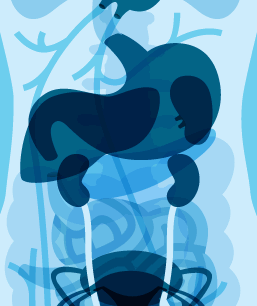
DID YOU KNOW?
The most common causes of Liver failure include, Hepatitis B, Hepatitis C, long-term excess alcohol consumption and malnutrition.
Organ failure
Major organ transplant
– from another donor
ABI+
Occasionally, an organ may become so diseased that it needs to be replaced. This is often the only treatment for end stage organ failure.
ABI requires recipient of a transplant of a complete heart, kidney, liver, lung, or pancreas. Our cover exceeds the ABI definition as we cover a recipient of a transplant of only one of the two lobes of the liver.
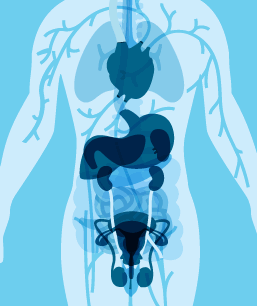
DID YOU KNOW?
Between April 1 2014, and 31 March 2015, 4,431 organ transplants were carried out in the UK. However, as of 31 March 2015 there were still 6,904 people waiting for transplants.*
*Organ Donation, NHS (2015).
Organ failure
Respiratory failure
– of advanced stage
In addition to ABI illnesses
Respiratory failure is a life-threatening illness where the lungs cannot provide enough oxygen for the rest of the body. Respiratory failure can also occur if the lungs can’t properly remove carbon dioxide from the blood. The condition may be described by some insurers as ‘chronic lung disease’ or ‘severe lung disease’.
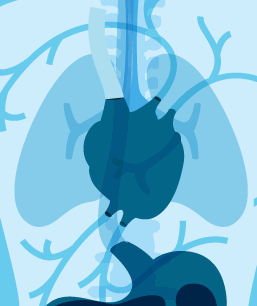
DID YOU KNOW?
Common causes of respiratory failure include pneumonia, pulmonary embolism and chronic obstructive pulmonary disease.
Infectious disease
Bacterial meningitis
– resulting in permanent symptoms
In addition to ABI illnesses
Bacterial meningitis causes inflammation to the meninges, the protective layer around the brain and spinal cord. It is caused by a bacterial infection and is classified as a medical emergency. Initial symptoms include headache, fever and vomiting.
About 1 in 10 people who contract bacterial meningitis will die and if left untreated, it can cause serious complications, such as brain damage, hearing loss or learning disabilities.

DID YOU KNOW?
There are two types of meningitis; bacterial and viral. Bacterial meningitis is very severe and should be treated as a medical emergency, while viral infection is far less severe and should clear up within a couple of weeks. Our definition only covers the more severe of the two; bacterial meningitis.
Infectious disease
HIV infection
– caught from a blood transfusion, physical assault or accident at work
ABI+
HIV stands for the Human Immunodeficiency Virus. It is a virus which attacks the body's immune system – the body's defence against diseases; increasing the risk of infections and tumours. HIV can lead to the development of Acquired Immune Deficiency Syndrome (AIDS).
Although there are treatments for AIDS and HIV to slow down the virus’s progression, there is currently no known cure.
Our definition goes beyond the ABI standard definition. When HIV is caught during an incident at work, we include all occupations with established reporting procedures.
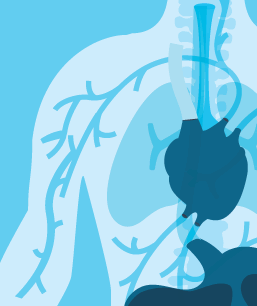
DID YOU KNOW?
The number of people living with HIV in the UK has doubled in the last 10 years. HIV affects all ages - over half of all people living with HIV in the UK are aged between 30 and 49.*
*HIV Aware (2015).
Immune system conditions
Aplastic anaemia
– with permanent bone marrow failure
In addition to ABI illnesses
Aplastic Anaemia is a rare but serious condition where bone marrow fails to produce enough new blood cells and clotting agents. These cells are required for a range of functions, including transporting oxygen around the body, taking carbon dioxide away to the lungs to be released, fighting infections and sealing small cuts.
Symptoms can include shortness of breath, excessive bleeding and an increased chance of catching infections.

DID YOU KNOW?
Aplastic anaemia is most common in adolescents, young adults, and the elderly.
Immune system conditions
Systemic lupus erythematosus
– with severe complications
In addition to ABI illnesses
Systemic lupus erythematous (SLE) is a chronic disease that causes inflammation in various parts of the body. The inflammation is caused by the body’s tissue being attacked by its own immune system, i.e. the body creates antibodies, which work against it. The illness can affect many parts of the body, from the skin to joints and kidneys. Symptoms may include painful, swollen joints, unexplained fever and extreme fatigue. No known cure currently exists, other than treatment to manage symptoms.

DID YOU KNOW?
SLE affects about 5 in 10,000 people in the UK. Although it can occur at any age, it’s more common in women aged 20-40*.
*Patient Info (2015).
Terminal illness
This provides cover against illnesses or conditions where in the opinion of your hospital consultant and our medical officer, life expectancy is 12 months or less. This covers against illnesses that have either no known cure, or has progressed to the point where it cannot be cured.

DID YOU KNOW?
In 2015 we paid out over £94 million in terminal illness claims.
We will pay a terminal illness claim at ANY time whilst the policy is in place.